
Will Neem Oil Have Adverse Effects on My Succulents?
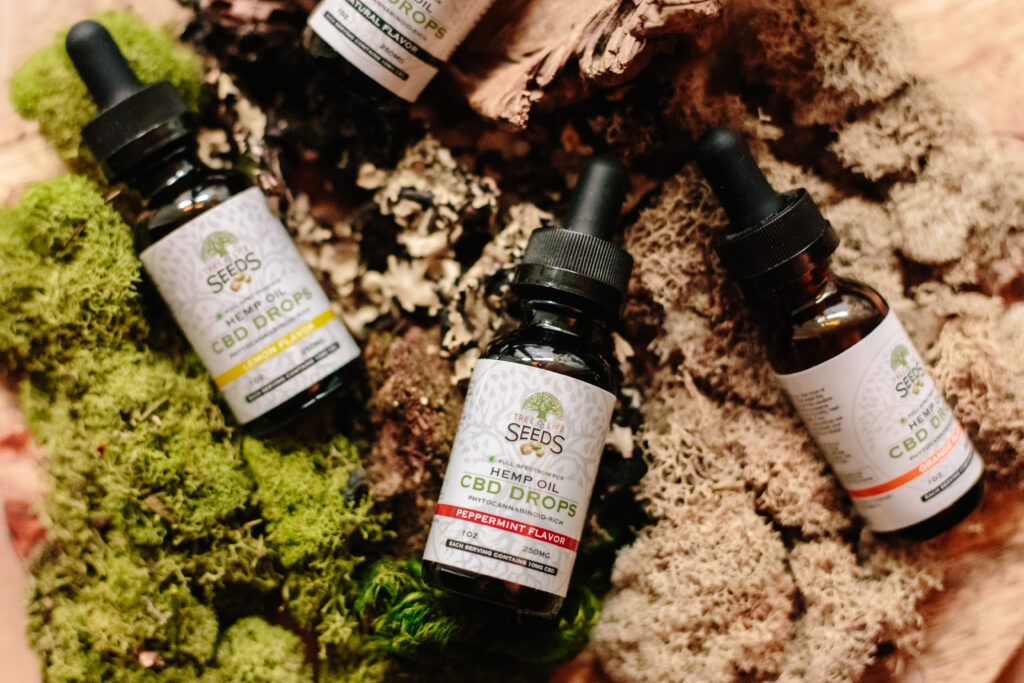
Succulents have become increasingly popular as houseplants due to their unique and visually appealing appearance. These plants are known for their ability to store water in their leaves, stems, and roots, allowing them to survive in arid conditions. However, like any other plant, succulents are susceptible to pests and diseases that can harm their health and beauty. One common method of pest control for succulents is the use of neem oil, a natural pesticide derived from the seeds of the neem tree.
We will explore the effects of neem oil on succulents and whether it can have any adverse effects on these plants. We will discuss the benefits of neem oil as a natural pesticide and its effectiveness in controlling common succulent pests such as aphids, mealybugs, and spider mites. Additionally, we will address any potential risks or side effects that neem oil may have on succulents, including leaf burn, toxicity, and disruption of beneficial insects. By the end of this article, you will have a better understanding of whether neem oil is a suitable and safe option for pest control in your succulent garden.
- No, neem oil is safe to use on succulents
- Neem oil will not harm your succulents
- Using neem oil can help protect your succulents from pests
- Neem oil is an organic solution for keeping succulents healthy
- Neem oil does not have any adverse effects on succulents
- Your succulents will be fine with neem oil treatment
- Neem oil is effective in controlling common succulent pests
- Don't worry, neem oil won't damage your succulents
- Neem oil is a natural and gentle option for succulent care
- You can safely use neem oil on your succulents without any negative consequences
- Frequently Asked Questions
No, neem oil is safe to use on succulents
Many succulent lovers often wonder if using neem oil on their plants will have any adverse effects. Rest assured, neem oil is actually considered safe to use on succulents and can provide numerous benefits.
What is neem oil?
Neem oil is derived from the seeds of the neem tree, scientifically known as Azadirachta indica. It has been used for centuries in traditional medicine and is known for its various properties, including its insecticidal, antifungal, and antibacterial qualities.
The benefits of using neem oil on succulents
Neem oil can be a valuable tool in your succulent care routine. Here are some of the benefits:
- Pest control: Neem oil acts as a natural insecticide, helping to control common pests that can damage succulents, such as aphids, mealybugs, and spider mites. Its compounds disrupt the insects' hormonal systems, ultimately leading to their demise.
- Fungal prevention: Succulents are prone to fungal infections, especially when overwatered. Neem oil has antifungal properties that can help prevent and treat fungal diseases, such as powdery mildew and root rot.
- Boosts plant immunity: Applying neem oil to your succulents can enhance their natural defense mechanisms, making them more resilient against potential threats.
How to use neem oil on succulents
Using neem oil on succulents is relatively simple. Here's a step-by-step guide:
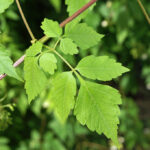 Common White Diseases: Identifying and Treating Succulent Afflictions
Common White Diseases: Identifying and Treating Succulent Afflictions- Mix the solution: Dilute neem oil in water according to the manufacturer's instructions. Typically, a ratio of 2-3 tablespoons of neem oil per gallon of water is recommended.
- Spray the solution: Using a spray bottle, evenly distribute the neem oil solution on all parts of the succulent, including the leaves, stems, and soil.
- Repeat as needed: Depending on the severity of the pest or fungal issue, you may need to repeat the application every 7-14 days until the problem is resolved.
It's important to note that while neem oil is generally safe for succulents, some plants may be more sensitive to it. It's always a good idea to test a small area of the plant first before applying it extensively.
Overall, neem oil can be an effective and safe solution for maintaining the health of your succulents. Just remember to follow the instructions and use it responsibly, and your plants will thank you for it!
Neem oil will not harm your succulents
Neem oil is a natural and safe solution that can be used to combat various pests and diseases in plants, including succulents. Contrary to popular belief, it will not have adverse effects on your beloved succulents. In fact, neem oil can be quite beneficial for these resilient plants.
The Benefits of Neem Oil for Succulents
Neem oil is derived from the seeds of the neem tree, a tropical evergreen native to India. It has been used for centuries in traditional medicine and agriculture due to its numerous beneficial properties. When applied to succulents, neem oil offers several advantages:
- Pest control: Neem oil acts as a natural insecticide, effectively repelling and killing common pests that can infest succulents, such as mealybugs, aphids, and spider mites. By regularly treating your succulents with neem oil, you can prevent these pests from causing harm to your plants.
- Disease prevention: Succulents are susceptible to certain diseases, such as fungal infections and powdery mildew. Neem oil has antifungal properties that can help prevent and control these diseases, keeping your succulents healthy and thriving.
- Boosting plant immunity: Neem oil contains compounds that stimulate the plant's natural immune system, making it more resistant to pests and diseases. Regular application of neem oil can strengthen the overall health of your succulents, making them less vulnerable to stress and damage.
How to Use Neem Oil on Succulents
Using neem oil on your succulents is relatively easy. Here's a step-by-step guide to help you:
- Mix the solution: Dilute neem oil with water according to the instructions on the product label. Generally, a ratio of 1-2 teaspoons of neem oil per gallon of water is recommended.
- Spray the plants: Use a spray bottle to apply the neem oil solution evenly on the leaves, stems, and soil of your succulents. Make sure to cover all areas, especially where pests or diseases are present.
- Repeat as needed: Depending on the severity of the infestation or the presence of diseases, you may need to repeat the neem oil treatment every 7-14 days. This will ensure continuous protection and control.
It's important to note that while neem oil is generally safe for succulents, it's always a good idea to test a small portion of your plant before applying it to the entire plant. Some succulent species may be more sensitive to neem oil, and it's better to be cautious.
 Understanding the Reason for White Fuzz on Succulent Leaves
Understanding the Reason for White Fuzz on Succulent LeavesNeem oil is a great natural solution for pest control and disease prevention in succulents. When used correctly and in moderation, it will not harm your precious plants. Incorporate neem oil into your succulent care routine, and enjoy having healthy and thriving succulents in your collection.
Using neem oil can help protect your succulents from pests
Neem oil is a natural and organic pesticide that can be an effective solution to control pests on your succulents. It is derived from the seeds of the neem tree, which is native to India and has been used for centuries in traditional medicine and agriculture.
One of the main advantages of using neem oil is that it is safe for humans, pets, and beneficial insects. Unlike chemical pesticides, neem oil does not pose a significant risk to the environment or your health.
How does neem oil work?
Neem oil contains compounds called azadirachtin and nimbin, which have insecticidal properties. When applied to your succulents, neem oil disrupts the feeding and reproductive cycles of pests, causing them to starve and eventually die. It also acts as a repellent, preventing insects from laying eggs or feeding on the plant.
Additionally, neem oil has antifungal properties that can help protect your succulents from common fungal diseases, such as powdery mildew and black spot.
How to use neem oil on succulents?
Before using neem oil on your succulents, it is essential to dilute it properly. Mix one teaspoon of neem oil with one quart of water and add a few drops of dish soap as an emulsifier. Transfer the solution to a spray bottle and shake well before applying.
To apply neem oil to your succulents, make sure the plant is not under direct sunlight. Spray the solution evenly on all parts of the plant, including the undersides of the leaves. It is recommended to apply neem oil in the early morning or late afternoon to avoid leaf burn caused by the sun's intense heat.
 Identifying & Treating Common White Bugs in Succulent Plants
Identifying & Treating Common White Bugs in Succulent PlantsAre there any adverse effects?
While neem oil is generally safe to use on succulents, it is essential to follow the recommended dilution and application instructions. Using undiluted neem oil or applying it too frequently can harm your plants and cause leaf burn.
Some succulent species may be more sensitive to neem oil than others, so it is always a good idea to test it on a small area of the plant first before treating the entire plant. If you notice any adverse effects, such as wilting, discoloration, or leaf damage, discontinue the use of neem oil.
Remember to always read the label and follow the instructions provided by the manufacturer when using neem oil or any other pesticide on your succulents.
Neem oil can be a valuable tool in combating pests and fungal diseases on your succulents. When used correctly, it is a safe and effective solution that can help keep your plants healthy and thriving.
Neem oil is an organic solution for keeping succulents healthy
Succulent plants have become increasingly popular in recent years due to their unique appearance and low maintenance requirements. However, like any other plant, succulents can fall victim to various pests and diseases that can hinder their growth and overall health.
One popular organic solution for keeping succulents healthy is neem oil. Neem oil is derived from the neem tree, native to the Indian subcontinent, and has been used for centuries for its medicinal properties.
The benefits of neem oil for succulents
Neem oil is an effective natural remedy for controlling common succulent pests such as aphids, mealybugs, and spider mites. Its active compounds act as a repellent, disrupt the pests' reproductive cycle, and inhibit their feeding ability.
 Are Tiny Bugs Harmful to Succulent Health?
Are Tiny Bugs Harmful to Succulent Health?Additionally, neem oil has antifungal properties that can help prevent and treat fungal infections that succulents are susceptible to, such as powdery mildew and root rot.
How to use neem oil on succulents
Before applying neem oil to your succulents, it is important to dilute it properly. Mix one teaspoon of neem oil with one quart of water and add a few drops of liquid dish soap to help emulsify the oil.
Using a spray bottle, apply the diluted neem oil to all parts of the succulent, including the leaves, stems, and soil surface. It is important to thoroughly cover the plant to ensure the pests or fungal spores are adequately targeted.
It is recommended to apply neem oil in the early morning or late afternoon when the temperatures are cooler to avoid any potential leaf damage from the sun.
Potential adverse effects on succulents
While neem oil is generally safe to use on succulents, it is important to exercise caution and follow the instructions carefully. Applying undiluted neem oil or using it in excessive amounts can lead to leaf burn and damage to the plant.
Some succulent varieties may also be more sensitive to neem oil than others. It is advisable to test a small area of the plant and monitor it for a few days before treating the entire plant.
Furthermore, neem oil should not be used on succulents that are stressed or undergoing extreme temperature changes, as it may further weaken the plant's defense mechanisms.
 Powdery Mildew on Succulents: Symptoms, Treatment, and Prevention
Powdery Mildew on Succulents: Symptoms, Treatment, and PreventionConclusion
Neem oil can be a valuable tool in maintaining the health of your succulents. Its organic nature and effectiveness against pests and fungal infections make it a popular choice among succulent enthusiasts. However, it is essential to use neem oil responsibly and follow the instructions to prevent any adverse effects on your beloved plants.
Neem oil does not have any adverse effects on succulents
Neem oil, derived from the neem tree, is a popular organic insecticide and fungicide used in gardening. It is known for its effectiveness in controlling pests and diseases without causing harm to the environment or beneficial insects. When it comes to succulents, you'll be glad to know that neem oil does not have any adverse effects on these resilient plants.
1. Pest Control:
Succulents, with their thick fleshy leaves, are typically more resistant to pests compared to other plants. However, they can still fall victim to common succulent pests like aphids, mealybugs, and spider mites. Neem oil can be a valuable tool in your arsenal to combat these pests, as it acts as a natural insect repellent and disrupts the pests' reproductive cycle.
When using neem oil on succulents, it is important to dilute it properly according to the instructions on the product. A general guideline is to mix 1-2 tablespoons of neem oil with a gallon of water and use a spray bottle to apply it to the affected areas of your succulents. Be sure to cover both the upper and lower surfaces of the leaves, as pests often hide underneath.
 Choosing Bug Spray for Succulents: Safety and Effectiveness
Choosing Bug Spray for Succulents: Safety and Effectiveness2. Fungal Disease Prevention:
Succulents are generally resistant to fungal diseases, but they can still be susceptible under certain conditions. Overwatering and poor air circulation are common culprits that can lead to diseases like powdery mildew and black spot. Neem oil can help prevent such fungal infections by acting as a protective barrier on the leaves.
To use neem oil as a preventive measure, dilute it as mentioned earlier and spray it onto the leaves of your succulents. This will create a thin coating that inhibits the growth of fungi. It is important to note that neem oil is more effective as a preventive measure rather than a treatment for existing fungal infections.
3. Environmental Impact:
One of the biggest advantages of using neem oil on succulents is its minimal impact on the environment. Neem oil is derived from the neem tree, which is native to India and has been used for centuries in traditional medicine and agriculture. It is biodegradable, non-toxic to humans and animals, and does not persist in the soil or water.
By choosing neem oil as a natural pest control option for your succulents, you can effectively manage pests and diseases while minimizing harm to the ecosystem.
Conclusion:
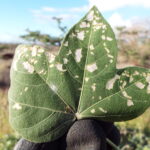 Understanding Leaf Loss in Succulents: Causes and Solutions
Understanding Leaf Loss in Succulents: Causes and SolutionsNeem oil is a safe and effective choice for pest control and fungal disease prevention in succulents. When used properly and in the recommended dilution, it does not have any adverse effects on these resilient plants. So, go ahead and give your succulents the protection they need with the help of neem oil.
Your succulents will be fine with neem oil treatment
Many succulent enthusiasts wonder if using neem oil on their plants will have any adverse effects. Neem oil, derived from the seeds of the neem tree, is a popular organic insecticide and fungicide. It has been used for centuries in traditional medicine and agriculture.
The good news is that neem oil is generally safe to use on succulents and is unlikely to cause any harm when used properly. In fact, it can be quite beneficial for your plants.
Why use neem oil on succulents?
Neem oil has several properties that make it an excellent choice for succulent care:
- Pest control: Neem oil acts as a natural insecticide, helping to control common pests that may infest your succulents, such as aphids, mealybugs, and spider mites. It works by disrupting the insects' feeding and reproductive systems.
- Fungal prevention: Succulents are prone to fungal diseases, especially when overwatered or exposed to high humidity. Neem oil has antifungal properties that can help prevent and control fungal infections.
- Boosts plant health: Neem oil contains essential nutrients and compounds that can promote overall plant health. It has been found to stimulate root growth, improve nutrient uptake, and enhance the plant's natural defense mechanisms.
How to use neem oil on succulents
When using neem oil on your succulents, it's important to follow the instructions carefully to ensure safe and effective application. Here are some general guidelines:
- Dilute the neem oil: Neem oil is highly concentrated and should be diluted before use. Mix it with water according to the manufacturer's instructions.
- Spray the solution: Use a spray bottle to apply the neem oil solution to your succulents. Make sure to cover all parts of the plant, including the leaves, stems, and soil surface.
- Apply regularly: To effectively control pests and prevent fungal infections, it's recommended to apply neem oil every 7-10 days or as needed. Be consistent with your treatments to ensure long-term success.
Remember, while neem oil is generally safe for succulents, it's always a good idea to test it on a small area of your plant before applying it all over. Some succulent species may be more sensitive to neem oil, so it's best to check for any adverse reactions.
 Is My Succulent Infested with Pests? Signs of White Web Infection
Is My Succulent Infested with Pests? Signs of White Web InfectionUsing neem oil on your succulents can be a safe and effective way to control pests, prevent fungal infections, and promote overall plant health. Just make sure to follow the instructions, dilute the oil properly, and apply it regularly for the best results.
Neem oil is effective in controlling common succulent pests
Neem oil is a natural and organic solution that has been widely used in the gardening community to control common succulent pests. It is derived from the seeds of the neem tree and has been used for centuries in traditional medicine and agriculture.
Succulents, with their thick and fleshy leaves, are particularly susceptible to pests such as mealybugs, aphids, and spider mites. These pests can cause damage to the plants, leading to stunted growth, yellowing leaves, and even death if left untreated.
However, neem oil is known for its insecticidal properties and can effectively eliminate these pests. It contains compounds that disrupt the life cycle of insects, preventing them from reproducing and causing further damage to your succulents.
How neem oil works
Neem oil works by suffocating the pests and interfering with their feeding habits. When applied to the affected plants, the oil coats the insects, cutting off their oxygen supply and ultimately causing their demise. Additionally, neem oil has a bitter taste, which deters pests from feeding on the treated succulents.
It is important to note that neem oil is not an immediate solution and may require multiple applications for complete eradication of the pests. Patience and consistency are key when using neem oil as a pest control method.
Applying neem oil to succulents
Before applying neem oil to your succulents, it is crucial to dilute it with water according to the instructions provided by the manufacturer. This ensures that the oil is not too concentrated and avoids any potential harm to your plants.
 Causes of Red Tips on Succulent Plants: A Comprehensive Guide
Causes of Red Tips on Succulent Plants: A Comprehensive GuideUsing a spray bottle, gently mist the affected succulents, making sure to cover both the upper and lower surfaces of the leaves. It is advisable to apply the neem oil treatment in the early morning or late evening when the temperatures are cooler, as this reduces the risk of leaf burn.
Precautions when using neem oil
While neem oil is generally safe for use on succulents, it is always recommended to perform a patch test on a small area of the plant before treating the entire plant. Some succulent species may have varying sensitivities to neem oil, and it is essential to ensure that your plants will not have adverse reactions.
Additionally, it is advisable to avoid using neem oil in direct sunlight or high temperatures, as this can increase the risk of leaf burn. Always follow the instructions provided by the manufacturer and use neem oil as directed.
Neem oil is an effective and natural solution for controlling common succulent pests. By understanding how it works and following the proper application techniques, you can protect your succulents from damage and ensure their health and vitality.
Don't worry, neem oil won't damage your succulents
Many succulent enthusiasts may be hesitant to use neem oil on their beloved plants, fearing that it may have adverse effects. However, rest assured that neem oil is actually a safe and effective option for treating common succulent pests without harming your plants.
What is neem oil?
 Understanding and Treating the White Substance on Succulents
Understanding and Treating the White Substance on SucculentsNeem oil is a natural, plant-based insecticide and fungicide derived from the seeds of the neem tree (Azadirachta indica). It has been used for centuries in traditional medicine and agriculture due to its numerous beneficial properties.
How does neem oil work?
Neem oil contains azadirachtin, a compound that disrupts the growth and reproduction of insect pests. It acts as an insect repellent, suffocates the pests by disrupting their breathing, and also interferes with their feeding habits. Additionally, neem oil has antifungal properties that can help combat fungal infections on your succulents.
Will neem oil harm my succulents?
No, neem oil is generally safe to use on succulents. However, as with any product, it is important to follow the instructions and dosage recommendations provided by the manufacturer. Using excessive amounts or spraying neem oil during hot, sunny weather may cause leaf burn or damage. It is also advisable to test a small area of your succulent before applying neem oil to the entire plant, especially if you have sensitive or rare varieties.
How to use neem oil on succulents?
1. Dilute neem oil: Mix neem oil with water according to the instructions on the product label. This will help ensure the proper concentration for treating pests and fungal issues.
2. Spray the affected areas: Use a spray bottle to apply the diluted neem oil mixture directly onto the affected areas of your succulents. Make sure to cover both the top and underside of the leaves, as well as any visible pests.
3. Repeat treatment: Depending on the severity of the infestation or infection, you may need to repeat the neem oil treatment every 7-14 days until the problem is resolved.
Conclusion
Neem oil is a safe and effective solution for treating pests and fungal infections on succulents. It is important to use the proper dilution and follow the instructions provided by the manufacturer to avoid any potential damage to your plants. With proper application, neem oil can help keep your succulents healthy and pest-free.
Neem oil is a natural and gentle option for succulent care
When it comes to caring for your succulents, it's important to choose the right products that will promote their health and growth. One such product that has gained popularity in recent years is neem oil. Derived from the seeds of the neem tree, neem oil is known for its natural insecticidal properties and has been used for centuries in traditional medicine and agriculture.
But before you reach for that bottle of neem oil and start spraying it on your precious succulents, you may be wondering if it will have any adverse effects on them. After all, succulents are known for their delicate nature and can be sensitive to certain treatments.
The Benefits of Neem Oil for Succulents
Neem oil, when used properly, can be a great addition to your succulent care routine. Here are some of the benefits it can provide:
- Natural Pest Control: Neem oil is effective in controlling common succulent pests such as aphids, mealybugs, and spider mites. Its insecticidal properties help to disrupt the life cycle of these pests, preventing them from damaging your plants.
- Fungal Disease Prevention: Succulents are prone to fungal diseases, especially when overwatered. Neem oil has antifungal properties that can help prevent diseases like powdery mildew and black spot from affecting your plants.
- Boosts Plant Immunity: Neem oil contains compounds that stimulate the plant's immune system, making it more resistant to pests and diseases. Regular application of neem oil can help strengthen the overall health of your succulents.
Using Neem Oil on Succulents
While neem oil can be beneficial for your succulents, it's important to use it correctly to avoid any adverse effects. Here are some tips for using neem oil on your succulents:
- Dilute the Neem Oil: Neem oil is highly concentrated and should be diluted before use. Mix a few drops of neem oil with water or a carrier oil, such as coconut oil, in a spray bottle.
- Test on a Small Area: Before applying neem oil to your entire succulent, do a patch test on a small section to ensure that your plant doesn't have any adverse reactions.
- Apply Sparingly: Use neem oil sparingly and avoid saturating your succulents. A light misting or targeted application on affected areas is usually sufficient.
- Apply in the Morning or Evening: It's best to apply neem oil in the morning or evening when the sun is not at its strongest. This helps prevent any potential leaf burn.
- Repeat as Needed: Depending on the severity of the pest infestation or fungal disease, you may need to repeat the application of neem oil every 7-14 days until the problem is resolved.
Remember, neem oil is just one tool in your succulent care arsenal. It's important to maintain a well-balanced care routine, including proper watering, adequate sunlight, and a well-draining soil mix, to ensure the overall health and happiness of your succulents.
So, go ahead and give neem oil a try, but always keep a close eye on your succulents and adjust your care routine as needed. With the proper use of neem oil and a little extra TLC, your succulents will thrive and continue to bring beauty to your space.
You can safely use neem oil on your succulents without any negative consequences
Neem oil is a natural and organic insecticide that has gained popularity among gardeners for its effectiveness in controlling pests. If you are a succulent enthusiast, you might be wondering whether neem oil will have adverse effects on your beloved plants. The good news is that you can safely use neem oil on your succulents without any negative consequences.
Why neem oil is safe for succulents
Neem oil is derived from the seeds of the neem tree and contains various compounds that act as insecticides. However, these compounds are relatively safe for succulents as they primarily target pests and do not harm the plants themselves.
One of the main reasons why neem oil is considered safe for succulents is its mode of action. Neem oil works by disrupting the feeding and reproductive processes of insects, ultimately leading to their demise. This means that neem oil mainly affects pests that are actively feeding on your succulents, such as aphids, mealybugs, and spider mites.
Additionally, neem oil is considered a low toxicity pesticide, meaning it poses minimal risk to humans, pets, and the environment when used as directed. This makes it an ideal choice for succulent owners who prioritize the health and well-being of their plants.
How to use neem oil on succulents
Using neem oil on your succulents is relatively straightforward. Here are some steps to follow:
- Identify the pests: Before applying neem oil, make sure to identify the specific pests that are affecting your succulents. Different pests may require different treatment approaches.
- Mix the neem oil solution: Dilute the neem oil according to the instructions on the packaging. Typically, a ratio of 1-2 teaspoons of neem oil per quart of water is recommended.
- Spray the solution: Transfer the neem oil solution to a spray bottle and thoroughly spray your succulents, making sure to cover both the upper and lower surfaces of the leaves. Pay extra attention to areas where pests are commonly found.
- Repeat as needed: Depending on the severity of the infestation, you may need to repeat the neem oil treatment every 7-14 days until the pests are completely eradicated.
It is important to note that neem oil is most effective when applied during the early stages of pest infestations. Regular monitoring and quick intervention can help prevent the pests from causing significant damage to your succulents.
Neem oil is a safe and effective option for controlling pests on your succulents. Its natural properties make it a preferred choice for many gardeners who want to maintain a healthy and pest-free environment for their plants. By following the proper application techniques, you can use neem oil confidently and rest assured that it won't have any adverse effects on your succulents.
Frequently Asked Questions
1. Will Neem Oil Have Adverse Effects on My Succulents?
Neem oil is generally safe for succulents when used properly. However, it is always recommended to test it on a small area first to ensure your plants do not have any negative reactions.
2. How often should I water my succulents?
Succulents have low water requirements and should be watered sparingly. It is best to water them when the soil is completely dry, usually once every 1-2 weeks depending on the climate and season.
3. Can succulents survive in low light conditions?
While succulents prefer bright, indirect light, some varieties can tolerate low light conditions. However, they may become leggy and lose their vibrant colors. It is recommended to provide them with as much light as possible.
4. How do I propagate succulents?
Succulents can be propagated through various methods like leaf cuttings, stem cuttings, or division. It is important to let the cuttings or divisions callus for a few days before planting them in well-draining soil to encourage root growth.
If you want to read more articles similar to Will Neem Oil Have Adverse Effects on My Succulents?, you can visit the Pests and Diseases category.

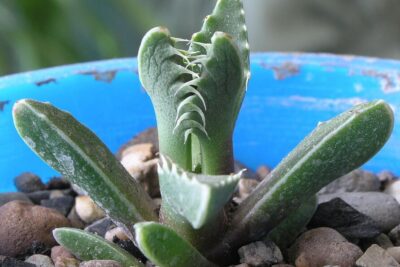

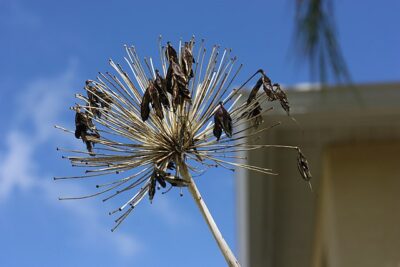

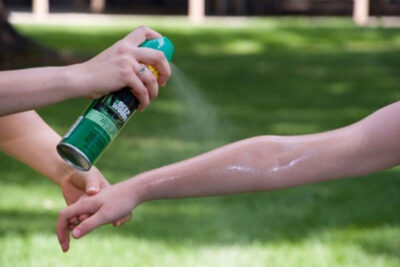
You Must Read